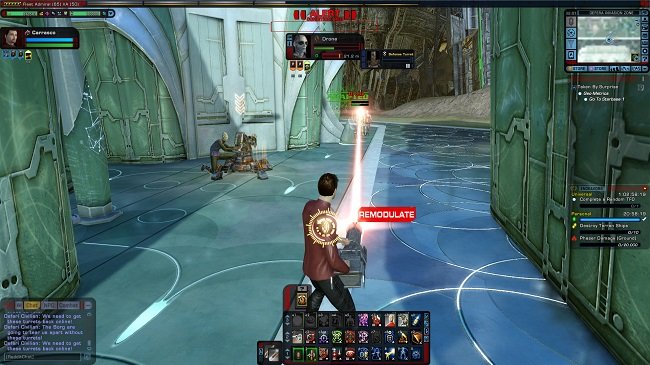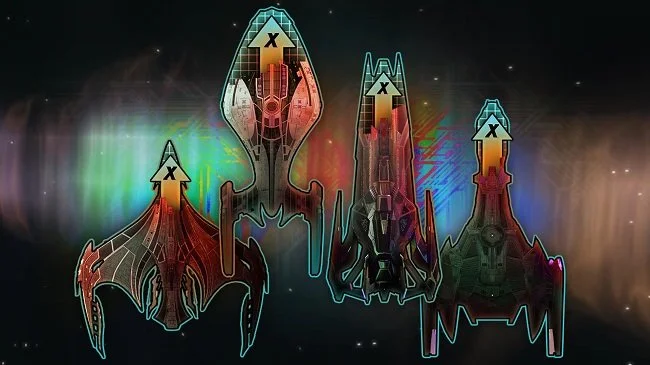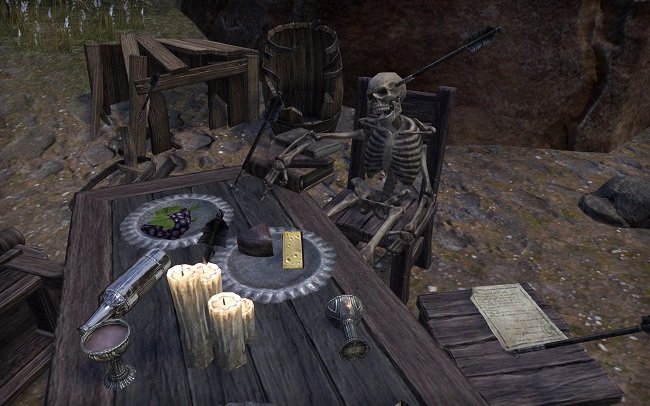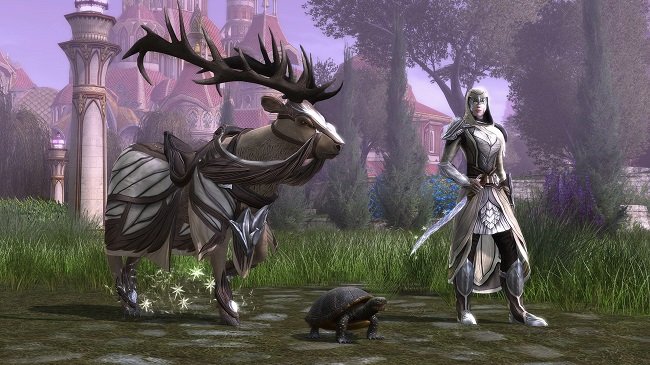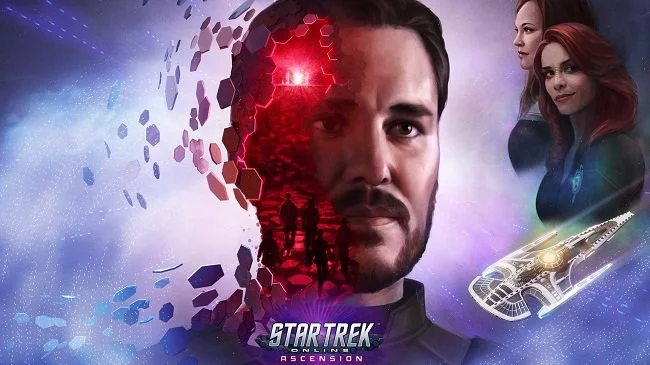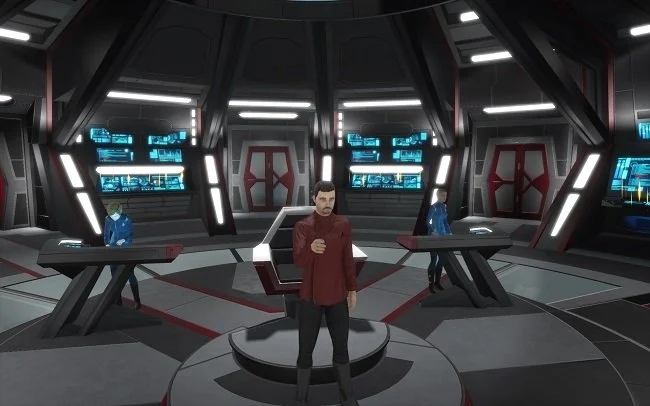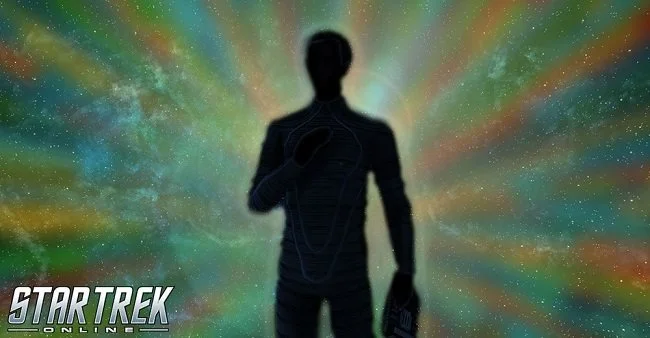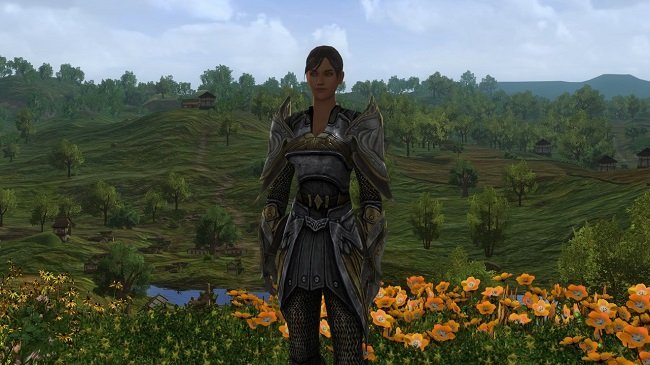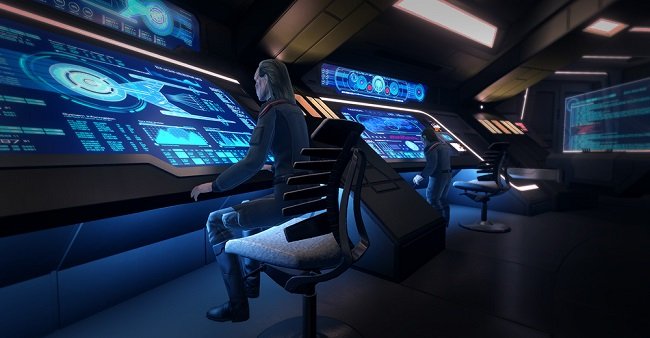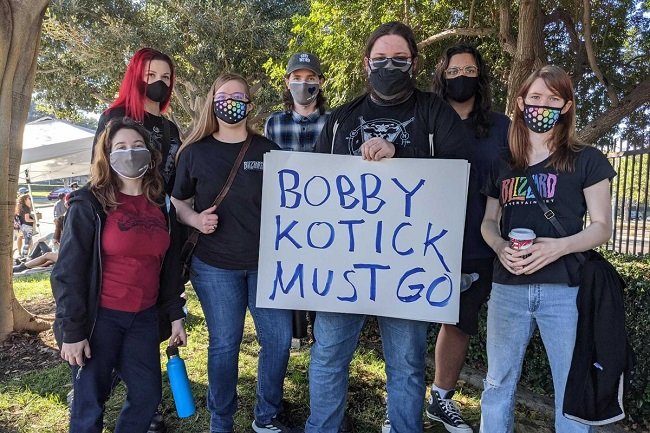Star Trek Online: Ten Years On
Star Trek Online had a troubled development. Originally the rights to develop an MMORPG based upon the Star Trek franchise were held by Perpetual Entertainment. However, the company ran into financial difficulties and the project subsequently stalled in 2007. The license, as well as any game content were subsequently transferred to Cryptic in early 2008 but this did not include any existing game code. Hence, after gaining little more than some concept art, Cryptic had to create an entirely new game from scratch. Furthermore as part of the deal in acquiring this coveted license, they were tied to the launch date that had been set for the previous developers.Therefore when Star Trek Online was released in early 2010 it was far from perfect. The game was weighted towards Federation characters and the Klingon faction could only be unlocked once you had taken a Starfleet Officer to the then level cap of 40. However, the game at launch did feature voice acting from Zachary Quinto, Chase Masterson and Leonard Nimoy.
The following few years were difficult as Cryptic attempted to polish the game in subsequent updates. Throughout 2010 that game was patched for known bugs, new playable species were added, along with Featured Episodes (story based quests that made up a long term, narrative arc). Cryptic also released a set of tools for players to create their own content and the Foundry subsequently became an integral part of the game. Yet despite their hard work, Cryptic found their immediate future in peril when parent company Atari decided to “divest” its various business interests. However, in May 2011, Chinese developer and publisher Perfect World stepped in and acquired Cryptic as a studio, its existing licenses and development team. By summer the game was having a UI overhaul, a revision to ground combat and the Klingon First City on Qo’noS. The new owners investment lead to an expansion of the development team which then produced the Defera Adventure Zone, Duty Officer system and a skill revamp. There was also a shift in business model and so in early 2012 STO went Free-to-play.
The period between 2012 and 2016 was in many ways a boom time for STO. There were regular story content updates, three free of charge expansions (Legacy of Romulus, Delta Rising and Agents of Yesterday) and numerous new game systems. These included Captain Specialisations, an overhaul of sector space to make it less “instanced” and several new Fleet resources. Reputation factions were also added, along with further playable races. STO always had new content in development and scheduled. Furthermore, more and more actors from the various TV shows were returning to voice their characters in game. Despite the gaming public being sceptical of the F2P business model at the time, it subsequently proved to be one of the more equitable examples. The game was ported to consoles by late 2016, something that was originally intended when the STO was conceived. Yet despite the growth and expansion during this period, STO still had to play catch up as a result of the initially rushed development. Bugs have been fixed but many still prevail. Due to the ebb and flow of staff and development priorities, many facets of the game have been abandoned. The Mac client was decommissioned, as was the Star Trek Online Gateway which allowed players to access stats and data, outside of the game.
Since 2017, although there was the release of a fourth, Deep Space Nine themed expansion (which really encapsulated the idiom of the show), much of the new content produced for the game has been co-operative PVE based material, repeatable daily missions and event based projects that reward the player with gear. A lot of this has been linked Star Trek: Discovery. There have been some new traditional story based missions but they have been fewer and far between. Cryptic are still remastering older content and although I must admit they’re doing it well, the pace is somewhat slow. Several iconic missions are still conspicuously absent and the game has had so many overhauls and restructurings, the narrative content is somewhat fragmented and difficult to follow due to plot holes caused by absent material. STO still has an issue with a lot of story and game systems being buried in more esoteric portions of the user interface. And then there is the game economy; the bane of many an MMO. Inflation for high end items and ships is rife.
And so to the present. STO is fast approaching its 10th anniversary. Naturally, Cryptic are making noises about there being major celebrations. No doubt there will be a new Tier 6 ship giveaway and the usual baubles and trinkets one expects with MMOs. But at present there has not been any clarification of the long term “road map” for the game. STO has a healthy and more to the point, loyal core player base. Like The Lord of the Rings Online, the intellectual property attracts fans and keeps them simply because there is no other comparable game. But if you visit the official STO subreddit you will find that players have a wide variety of desires and expectations from the game. Crafting is a neglected area, as it exploration and diplomatic themed content. Cryptic have brought patrols back to the game but considering the number of planetary systems that exist in the game, there are still insufficient numbers. Players are concerned about the lack of variety in builds and how optimal loadouts continue to prevail. STO is also a game that has no imperative to play collaboratively. Task Force Operations require weight of numbers but not players playing specific roles. Notions of the traditional MMO trinity have long since vanished. There is also no meaningful endgame as such. Chasing maximum DPS seems to be the only viable pursuit at level cap. That or a focus on cosmetic appearance, known in-game as “Space Barbie”.
Again, I return to the comparison with fellow MMORPG LOTRO. The reason that the Middle-earth based game has survived over a dozen years is because the developers always focus on the core requirement of its players; namely the regular provision of new narrative content that explores the source material’s lore. Turbine and now Standing Stone Games have added much to the game over the years but they have always ensured, even during lean periods, that there was an additional story driven quests to undertake. People come to STO because it is Star Trek. They want access to a virtual version of Gene Roddenberry’s vision so they can explore the worlds and themes that Star Trek has created over fifty years. Stories that touch upon iconic episodes or reference obscure aspects of canonical lore are always appreciated and warmly welcomed. Yet this sort of content appears to be in decline as Cryptic dither over whether to make the game meet its potential or simply exploit the latest iteration of the show to contribute towards STO just being another “live service”. The 10th anniversary is the perfect opportunity to put STO back on track and for the game to be all it can be. Let us see what happens next.











